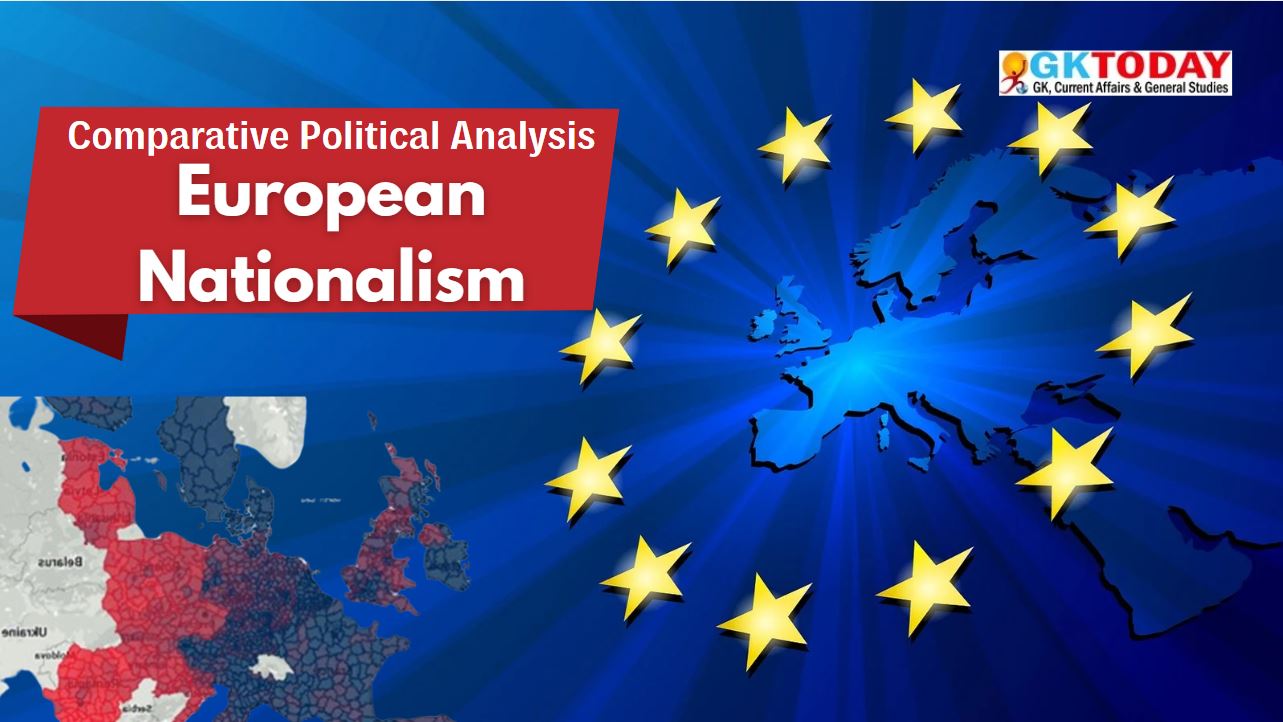European Nationalism [UGC NTA NET Political Science Notes]
Nationalism is a political ideology that prioritises the interests of a nation. It often promotes national identity and unity while opposing external control. Nationalism can manifest in various forms, including:
- Civic Nationalism: Focuses on shared citizenship and values, regardless of ethnicity.
- Ethnic Nationalism: Emphasises common ancestry and cultural heritage.
- Cultural Nationalism: Highlights the importance of cultural identity and traditions.
Historical Background
Nationalism emerged prominently in the 19th century. Influenced by the French Revolution (1789), it marked the rise of the nation-state. Key events include:
- Unification of Italy (1861): Led by figures like Giuseppe Garibaldi and Count Camillo di Cavour.
- Unification of Germany (1871): Orchestrated by Otto von Bismarck, consolidating various German states.
These events were very important in shaping national consciousness across Europe.
Key Theories of Nationalism
Several theories explain the nature of nationalism:
- Primordialism: Suggests national identity is ancient and rooted in ethnic ties.
- Modernism: Argues that nationalism is a modern construct, arising from socio-economic changes.
- Ethnosymbolism: Focuses on symbols, myths, and traditions that form national identity.
These theories offer different perspectives on how national identities are formed and maintained.
Major Movements and Figures
Nationalism has been driven by influential figures and movements:
- Italian Nationalism: Key figures include Giuseppe Mazzini, who advocated for a unified Italy, and Giuseppe Garibaldi, a military leader.
- German Nationalism: Johann Gottfried Herder promoted the idea of a Volk, or national spirit, while Otto von Bismarck unified Germany through strategic wars.
- Pan-Slavism: A movement aimed at uniting Slavic peoples, in Eastern Europe.
These movements reflect the diverse expressions of nationalism across Europe.
Nationalism in the 20th Century
The 20th century witnessed shifts in nationalism:
- Post-World War I: The Treaty of Versailles redrew borders, leading to new nation-states in Eastern Europe.
- Interwar Period: Extreme nationalism rose, notably in Nazi Germany, leading to devastating consequences.
- Post-World War II: Decolonisation resulted in the emergence of new nations, reshaping the European landscape.
These developments highlight the transformative power of nationalism.
Nationalism and State Formation
Nationalism played important role in the creation of modern nation-states. It influenced:
- Territorial Integrity: Nationalism often drives the quest for defined borders.
- Sovereignty: It reinforces the right of nations to govern themselves.
- Unifying Force vs. Conflict: Nationalism can unite people but also lead to conflicts, as seen in the Balkans.
The dual nature of nationalism impacts state stability.
Nationalism and Identity
Nationalism is deeply intertwined with national identity. Key aspects include:
- Language: Language is a vital component of cultural identity.
- Culture: Shared customs and traditions reinforce national bonds.
- Religion: Religious beliefs can shape national identity, as seen in various European nations.
Globalisation poses challenges to traditional national identities.
Contemporary Nationalism
Recent trends indicate a resurgence of nationalism in Europe:
- Right-Wing Populism: Movements like Brexit and France’s National Front highlight growing nationalist sentiments.
- Nationalism vs. Supranationalism: The European Union faces challenges from nationalist agendas.
- Ethnic Nationalism: Separatist movements, such as those in Catalonia and Scotland, exemplify contemporary tensions.
These trends illustrate the ongoing relevance of nationalism.
Critiques of Nationalism
Nationalism faces several critiques:
- Xenophobia and Racism: Nationalist ideologies can encourage exclusionary attitudes.
- Cosmopolitanism: Critics argue for a more global perspective, contrasting with nationalist views.
- Unity vs. Division: Nationalism can create unity within a nation but also encourage divisions between groups.
These critiques challenge the assumptions of nationalist ideologies.
Case Studies
Examining specific case studies sheds light on nationalism’s impact:
- France: Laïcité promotes secular nationalism, influencing public policy.
- United Kingdom: Nationalism affects the union, particularly in Scotland and Northern Ireland.
- Eastern Europe: Nationalism in the Balkans has been factor in regional conflicts.
These examples illustrate the diverse manifestations of nationalism.
Nationalism and International Relations
Nationalism influences international relations:
- Foreign Policy: Nationalist sentiments shape a nation’s approach to international affairs.
- Conflicts and Wars: Nationalism can be a catalyst for conflicts, as seen in various historical and contemporary contexts.
- International Organisations: Nationalism can complicate cooperation within organisations like the United Nations.
About these dynamics is crucial for analysing global politics.
Future of Nationalism in Europe
The future of nationalism in Europe remains uncertain:
- Response to Immigration: Increasing immigration has reignited nationalist sentiments.
- Economic Crises: Economic challenges can fuel nationalist movements.
- Climate Change: Global challenges may reshape national identities and priorities.
These factors suggest that nationalism will continue to evolve in response to contemporary issues.


